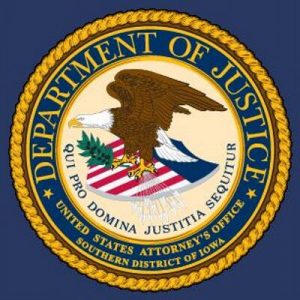[Kansas City, MO] — Every year, the U.S. Department of Transportation’s National Highway Traffic Safety Administration (NHTSA) Region 7, which includes Arkansas, Iowa, Kansas, Missouri, and Nebraska, partners with local communities to hold Child Passenger Safety Week, which runs this year from September 15-21. The annual safety week ends with National Seat Check Saturday (September 21), a day for parents and caregivers to receive free instruction on how to correctly install and use the right car seats for their children. There are many locations throughout the region that will be offering free car seat inspections by certified Child Passenger Safety Technicians. Find out if an event or technician is available in your community by visiting www.nhtsa.gov/CarSeatInspection. Technicians will check car seats, let caregivers know if their children are in the right seats for their ages and sizes, and show them how to install the right seats correctly.
“Unfortunately, many parents are overconfident about their car seats,” said Regional Administrator Susan DeCourcy. “They think they are protecting their kids, but statistically, nearly half of car seats are either the wrong seat for the child’s age and size, or the seats are installed incorrectly. That puts children at risk.”
According to NHTSA, motor vehicle crashes are a leading cause of death for children. Every day in 2022, an average of three children 13 and younger were killed in crashes, and another 429 were injured. “We know parents love their kids,” added DeCourcy, “so they’ll do everything in their power to protect them. An easy way to do that is to double-check their car seats — it’s worth making sure.”
In 2022, almost half (49%) of the children killed while riding in light pickup trucks were unrestrained, followed by SUVs (38%), passenger cars (34%), and vans (12%). NHTSA wants caregivers to know that it’s never safe to ride unbuckled in a passenger vehicle — no matter how short the trip or how big the vehicle. Bigger vehicles don’t protect child passengers, but properly used car seats, booster seats, and seat belts do.
When it comes to child passengers, there is a correctly sized seat for every age and developmental stage — from infants to teens. Whether it’s a rear-facing car seat, a forward-facing car seat installed with a tether, a booster seat, or a seat belt, a certified Child Passenger Safety Technician can put parents’ minds at ease by discussing correct car seat selection and showing them how to correctly install that seat in their vehicle. Children should stay in each seat and position until they outgrow those limits, and it’s important for all children under 13 to ride in the back seat. 
If the allotted times on Saturday don’t work for your schedule, but you’d still like to have your car seats checked, find out if a technician is available in your community by visiting this helpful website from NHTSA. You can even filter your search results by Spanish-speaking technicians, virtual appointments, and Child Passenger Safety Week events. NHTSA.gov also has free resources available to caregivers. Learn about the different car seat types, read NHTSA’s research-based recommendations, and find and compare car seats.
It’s also important for caregivers to register their car seats with the manufacturer so they can be notified in the event of a recall. Download NHTSA’s SaferCar app, which allows users to save their vehicle, car seat, and tire info in a virtual garage. If any of the saved equipment is included in a safety recall, the app will send a notification.
For more information on child car seat safety, as well as how to find other car seat check events, go to www.nhtsa.gov/therightseat.










